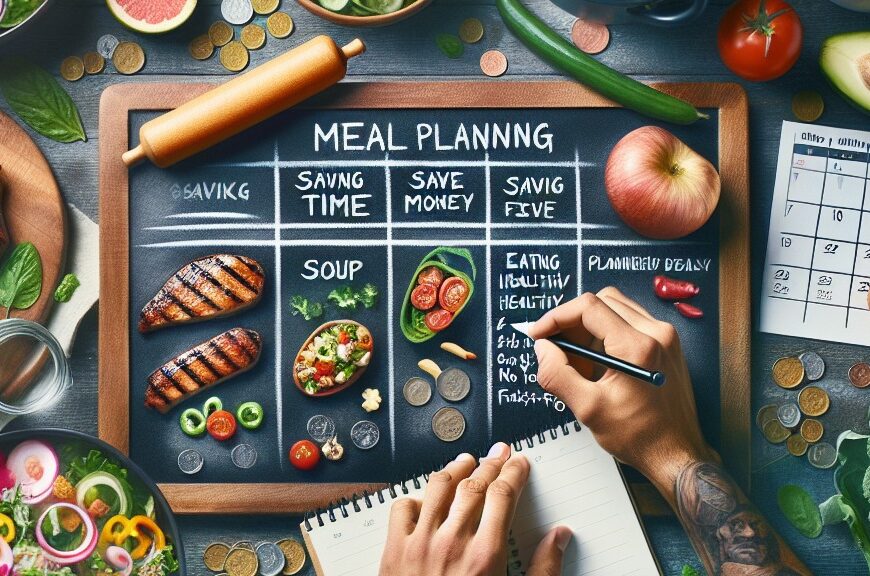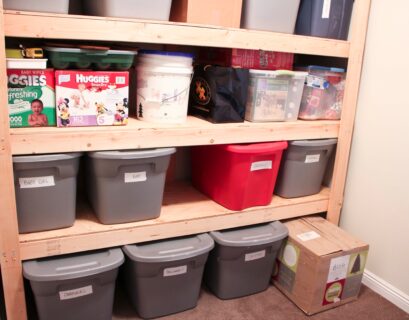In the hustle and bustle of daily life, figuring out what to cook for dinner each night can be a source of stress. One effective way to streamline your meal preparation and ensure you’re eating healthy, balanced meals is to plan your meals weekly. Here’s how you can get started with weekly meal planning and enjoy the benefits of a more organized and efficient kitchen routine.
Benefits of Weekly Meal Planning
- Saves Time: By planning your meals in advance, you can reduce the time spent deciding what to cook each day.
- Reduces Stress: Knowing what’s for dinner takes the guesswork out of mealtime, making evenings more relaxed.
- Promotes Healthy Eating: Planning meals allows you to incorporate a variety of nutritious foods into your diet.
- Saves Money: By shopping with a plan, you can avoid impulse purchases and make the most of what you buy.
- Reduces Food Waste: Planning meals helps you use ingredients more efficiently, cutting down on food waste.
Steps to Start Weekly Meal Planning
- Assess Your Week Begin by looking at your upcoming week. Consider any special events, busy days, or nights when you might need a quick meal. This helps you tailor your meal plan to fit your schedule.
- Choose Your Recipes Select a variety of recipes for the week, aiming for a balance of proteins, vegetables, and grains. Include family favorites as well as new dishes to keep things interesting. Remember to consider breakfast, lunch, and snacks in addition to dinner.
- Create a Shopping List Once you have your recipes, make a shopping list of all the ingredients you’ll need. Check your pantry and fridge first to avoid buying items you already have. Organize your list by sections of the grocery store to make shopping quicker and easier.
- Prep in Advance If possible, do some meal prep on the weekend or at the start of the week. Chop vegetables, marinate meats, and cook grains ahead of time. This will save you time on busy weekdays.
- Stay Flexible While having a plan is great, it’s important to stay flexible. Life happens, and sometimes plans change. Have a few quick and easy backup meals in mind, like pasta or stir-fry, for those nights when things don’t go as planned.
Tips for Successful Meal Planning
- Start Simple If you’re new to meal planning, start with just a few meals a week and gradually increase as you get more comfortable. Don’t overwhelm yourself by planning every single meal right away.
- Use Themes Theme nights can simplify planning and add fun to your meals. Ideas include Meatless Mondays, Taco Tuesdays, or Pasta Fridays. This structure can make selecting recipes easier.
- Batch Cooking Cook large batches of certain dishes that can be eaten over multiple days or frozen for future use. Soups, casseroles, and roasted vegetables are great options for batch cooking.
- Involve the Family Get input from your family on what meals they’d like to have during the week. This can make meal planning more enjoyable and ensure everyone is happy with the menu.
- Utilize Technology There are many apps and websites available that can help with meal planning. These tools can provide recipe ideas, generate shopping lists, and even help you keep track of what’s in your pantry.
Sample Weekly Meal Plan
Here’s an example of a simple weekly meal plan to get you started:
Monday:
- Breakfast: Greek yogurt with honey and berries
- Lunch: Turkey and avocado wrap
- Dinner: Grilled chicken with quinoa and steamed broccoli
Tuesday:
- Breakfast: Oatmeal with bananas and walnuts
- Lunch: Spinach salad with grilled shrimp
- Dinner: Tacos with ground beef, lettuce, cheese, and salsa
Wednesday:
- Breakfast: Smoothie with spinach, banana, and almond milk
- Lunch: Leftover tacos
- Dinner: Baked salmon with roasted sweet potatoes and asparagus
Thursday:
- Breakfast: Scrambled eggs with toast
- Lunch: Chicken Caesar salad
- Dinner: Spaghetti with marinara sauce and garlic bread
Friday:
- Breakfast: Fruit salad with cottage cheese
- Lunch: Veggie wrap with hummus
- Dinner: Homemade pizza with your choice of toppings
Saturday:
- Breakfast: Pancakes with maple syrup
- Lunch: BLT sandwich
- Dinner: Stir-fry with beef, bell peppers, and broccoli over rice
Sunday:
- Breakfast: Bagel with cream cheese
- Lunch: Tomato soup with grilled cheese
- Dinner: Roast chicken with mashed potatoes and green beans
Conclusion
Weekly meal planning is a powerful tool for simplifying your life, saving time and money, and promoting healthier eating habits. By dedicating a little time each week to plan your meals, you can enjoy the benefits of a more organized and stress-free approach to cooking. Give it a try and see how it transforms your kitchen routine.











